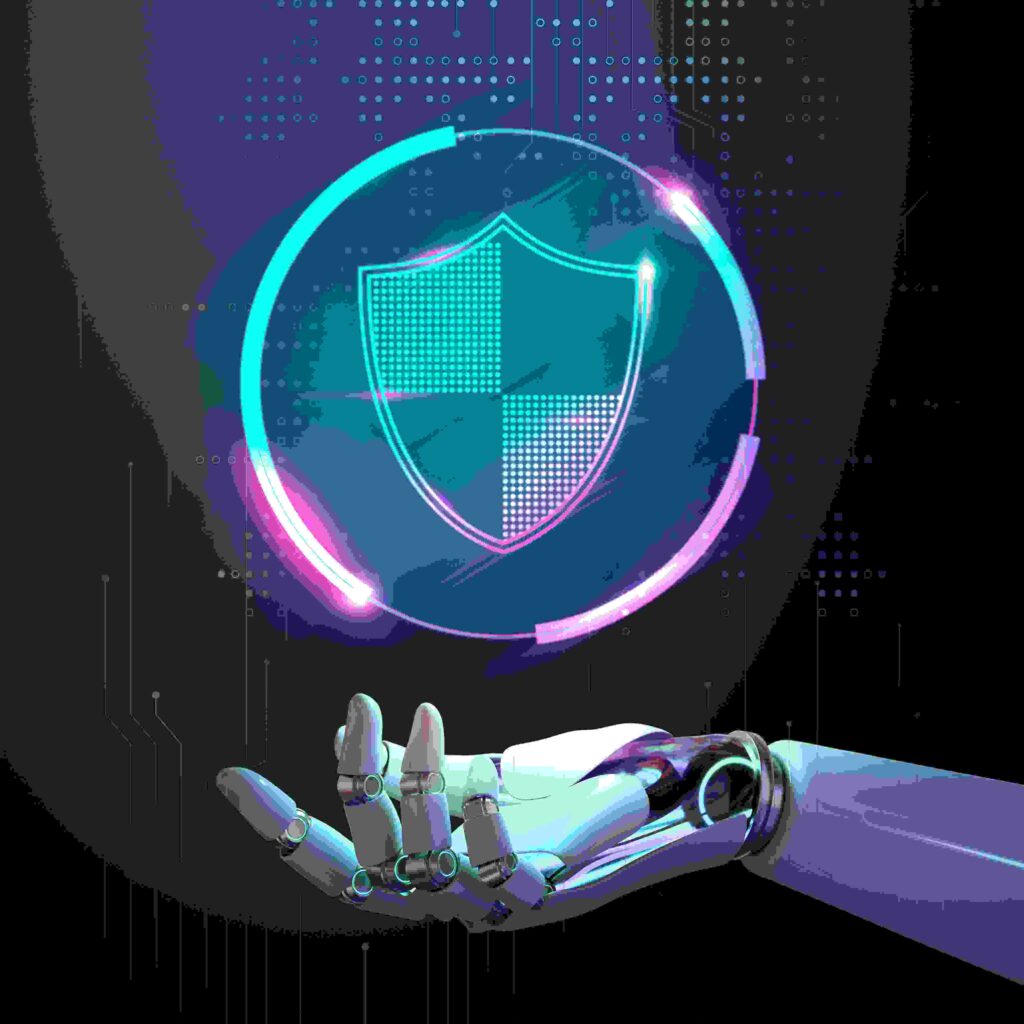

In this detailed guide, we’ll walk you through what AI Design Certification is, why it’s essential in today’s creative landscape, and how it can propel you into new career opportunities. Plus, we’ll explore what you can expect to learn during the certification process, how to earn it, and the real-world impact this training can have on your work.
What is AI Design?
At the heart of AI Design Certification is the application of artificial intelligence technologies to enhance and amplify creativity. Think of AI as a digital assistant that doesn’t just help with menial tasks but also contributes to the creative process itself. From graphic design to digital art, web design, and product development, AI is shifting how designers conceptualize, create, and refine their work.
Imagine having an AI-powered tool that helps you generate fresh design concepts based on a few input parameters. Picture AI algorithms analyze millions of images to identify trends and suggest color schemes that are likely to resonate with your target audience. In short, AI Design Certification teaches you how to harness AI to drive innovation in the creative process, making designers more efficient and freeing up time for more imaginative, high-level tasks.
Some common applications of AI in design include:
- Automating Repetitive Tasks: AI tools can take care of time-consuming tasks like resizing images, optimizing layouts, and adjusting colors.
- Generative Design: Using AI to generate design variations, from logos to product prototypes, based on predefined inputs.
- Personalized User Experiences: AI can track user behavior and dynamically adapt designs to suit individual preferences, enhancing user satisfaction.
- Creating Dynamic Art: Digital artists are using AI to create art, animations, and even 3D models by feeding the algorithm with a basic concept and letting it generate the rest.
AI is enabling design teams to be more creative, agile, and efficient than ever before, and as the demand for AI-driven creativity grows, so does the need for professionals skilled in this cutting-edge field.
Why AI Design Certification Matters
You might be wondering, “Why should I pursue an AI Design Certification?” Here’s why it could be a game-changer for your career.
1. Stay Ahead in a Competitive Job Market
As AI becomes more integrated into design processes, businesses are actively seeking professionals who can leverage AI to innovate. An AI Design Certification shows potential employers that you not only understand the power of AI but also know how to apply it creatively. It proves that you’re not just a designer, you’re a forward-thinking designer ready to meet the demands of the modern, tech-driven marketplace.
2. Unleash Your Creativity
AI isn’t just about automating tasks; it’s about expanding what’s possible in design. AI Design Certification equips you to unlock your creative potential. AI-powered tools can suggest new ideas, generate concepts, and even surprise you with creative variations that you may not have considered. By learning how to harness AI, you’ll gain access to a new creative playground where your imagination can truly run wild.
3. Future-Proof Your Career
The design industry, like many others, is evolving at a rapid pace. AI is no longer a futuristic technology, it’s already a part of the design landscape. With AI Design Certification skills, you’re not just preparing for today’s job market; you’re positioning yourself to thrive in a future where AI and creativity will coexist seamlessly.
4. Improve Efficiency and Save Time
One of the most powerful advantages of AI in design is its ability to automate mundane, repetitive tasks. Whether it’s organizing assets, optimizing color schemes, or resizing images, AI tools handle the grunt work, so you can focus on what matters most: the creative process. This means you’ll not only produce more work in less time but also have more energy to invest in truly innovative ideas.
5. Expand Your Career Opportunities
The demand for designers who understand AI is skyrocketing. Whether you’re looking for a role in graphic design, UX/UI design, product design, or digital art, AI Design Certification opens the door to a wide array of job opportunities. Many organizations are looking for designers who can bridge the gap between technology and creativity, making AI-savvy professionals highly sought after.
What Does an AI Design Certification Cover?

An AI Design Certification is a comprehensive learning experience that covers both the technical and creative sides of AI in design. Here’s a closer look at the key topics you’ll explore during your certification journey:
1. Introduction to AI and Machine Learning
Before diving into AI-driven design tools, it’s crucial to understand the fundamentals of artificial intelligence and machine learning. You’ll learn about:
- The principles of AI and how it works in simple terms.
- Different types of machine learning models, including supervised, unsupervised, and reinforcement learning.
- Common AI algorithms and their application in design tools.
2. Generative Design and AI Algorithms
Generative design is one of the most exciting areas where AI is making an impact. This section will teach you:
- How AI can generate a wide range of design options based on a set of parameters.
- Working with tools like Generative Adversarial Networks (GANs) to create new visual styles or even full designs.
- Applying machine learning algorithms to create unique, tailored solutions that fit specific design challenges.
3. AI in Graphic Design and UX/UI
AI has huge implications for the way we approach graphic design and user experience. In this module, you’ll:
- Learn how AI tools can automate repetitive tasks such as resizing images or creating layouts.
- Explore how AI can personalize user interfaces based on user behavior and preferences, improving overall user experience.
- Study how AI tools help designers predict what designs will work best for certain user groups.
4. Data-Driven Design
AI is a powerful tool for harnessing data and turning it into actionable insights. During this section, you’ll learn how to:
- Use AI to analyze user data and feedback to make design decisions.
- Predict user behavior and personalize design elements accordingly.
- Incorporate AI into A/B testing to optimize designs and improve user engagement.
5. AI in Digital Art and Animation
AI is transforming the world of digital art, and artists are using machine learning to create stunning visuals. Here, you’ll explore:
- How artists are using AI to generate new art styles, including abstract and surrealist designs.
- AI-powered animation tools that can help automate frame-by-frame adjustments.
- Using neural networks to create lifelike characters or environments for animations.
6. Ethics and Responsibility in AI Design
With great power comes great responsibility. AI can be biased or unintentionally harmful if not used thoughtfully. In this module, you’ll discuss:
- The ethical implications of AI in creative fields.
- How to recognize and avoid AI bias in design.
- The role of designers is to ensure that AI-powered tools are used responsibly and ethically.
7. Practical Application and Portfolio Development
A key part of the certification is applying what you’ve learned to real-world projects. You’ll:
- Work on case studies and hands-on projects using AI design tools.
- Build a portfolio showcasing your AI-enhanced designs.
- Gain experience working with popular AI design platforms like Adobe Sensei, RunwayML, and DeepDream.
Certifications in AI Design: Elevate Your Skills and Career

As artificial intelligence continues to shape the design industry, obtaining an AI Design Certification can greatly enhance your expertise, making you a standout candidate in a competitive job market. Certifications not only boost your skillset but also show employers that you’re serious about embracing the future of design. Below are some of the top certifications in AI design that can help you stay ahead in this rapidly evolving field:
1. AI Design Certification by AI CERTs
The AI Design Certification by AI CERTs is a comprehensive program that focuses on integrating AI tools into design workflows. This certification covers everything from using machine learning for generative design to optimizing user interfaces based on data insights.
- Key Skills Covered:
- AI-powered graphic design tools
- Generative design techniques
- Data analysis for personalized design
- Ethical considerations in AI design
By completing this certification, you’ll be equipped to bring AI into your design processes, allowing you to create innovative, data-driven designs.
Learn more about the AI+ Design Certification and start your journey today!
2. Certified AI Product Designer (CAIPD)
The Certified AI Product Designer (CAIPD) certification focuses on the integration of AI into product design. This program teaches you how to use AI to create personalized products, generate design prototypes, and analyze user behavior.
- Key Skills Covered:
- AI-powered product ideation and design
- User behavior analytics
- AI-driven product prototyping and testing
Learn more about the Certified AI Product Designer program here!
3. Certified UX/UI Designer with AI (CUXAID)
The CUXAID certification is ideal for UX/UI designers who want to learn how AI can enhance their designs. This certification covers how AI can be used for creating personalized user interfaces, predicting user behavior, and improving overall user experience.
- Key Skills Covered:
- AI-based interface design
- Personalized UX strategies
- Predictive modeling for user experience
Learn more about the Certified UX/UI Designer with AI here!
How to Earn Your AI Design Certification
Earning an AI Design Certification involves several key steps:
- Choose the Right Program
First, find a certification program that offers comprehensive training in AI design. Make sure the program covers both the creative and technical aspects of AI design and is recognized by industry professionals. Platforms like AI CERTs offer well-structured, accredited certification programs. - Complete the Coursework
The certification process typically involves completing online modules, interactive lessons, and assignments. The coursework will be designed to help you gradually build up your skills and apply AI tools in real-world scenarios. - Pass the Exam or Capstone Project
To earn your certification, you may need to complete a final exam or capstone project. The project will likely require you to showcase your ability to use AI in the design process and demonstrate a solid understanding of both AI concepts and design principles. - Build Your Portfolio
As you progress through the course, be sure to work on projects that showcase your skills. This portfolio will serve as proof of your capabilities when seeking job opportunities or freelance work.
Career Opportunities with AI Design Certification
With an AI Design Certification, a world of exciting career opportunities opens up. Here are just a few roles where AI-savvy designers are in high demand:
- AI Designer
As an AI designer, you’ll use machine learning tools to create innovative digital designs. From websites to logos to interactive ads, you’ll be applying AI-driven design techniques across a wide range of projects. - UX/UI Designer
AI tools can help UX/UI designers create more intuitive, personalized user interfaces. As a designer with AI expertise, you’ll be able to use data and machine learning to build smarter, more user-friendly designs. - Product Designer
AI is transforming product design, from generating product concepts to simulating prototypes. As a product designer with AI knowledge, you can help companies develop cutting-edge products that leverage AI. - Creative Director
Creative directors with AI design knowledge are highly sought after. You’ll oversee a team of designers and use AI tools to bring creative visions to life in new and exciting ways. - AI Consultant for Design Teams
Many design firms and companies are looking to integrate AI into their processes. As a consultant, you’ll help businesses optimize their design workflows by implementing AI tools and strategies.
Conclusion
The AI Design Certification is a valuable credential that can significantly enhance your design career. It equips you with the skills to harness the power of AI in your creative process, allowing you to stay competitive, innovative, and relevant in the ever-evolving design industry. Whether you’re looking to streamline your workflow, generate creative designs, or future-proof your career, AI design knowledge is essential.
Ready to dive into the future of design? Learn more about AI+ Design Certification and start your journey Contact us today!


























